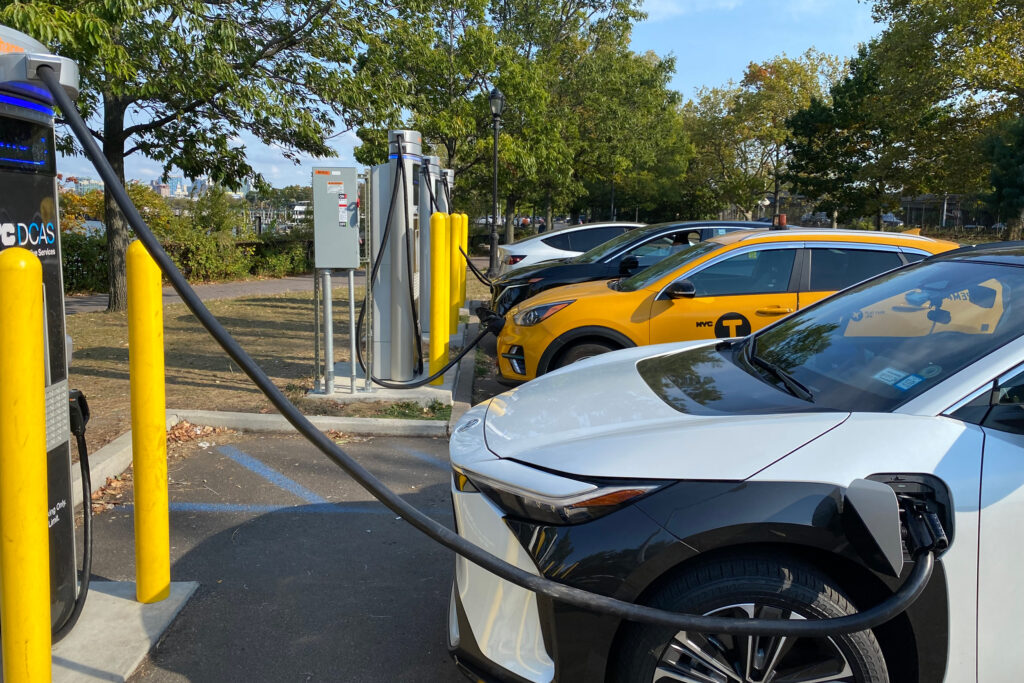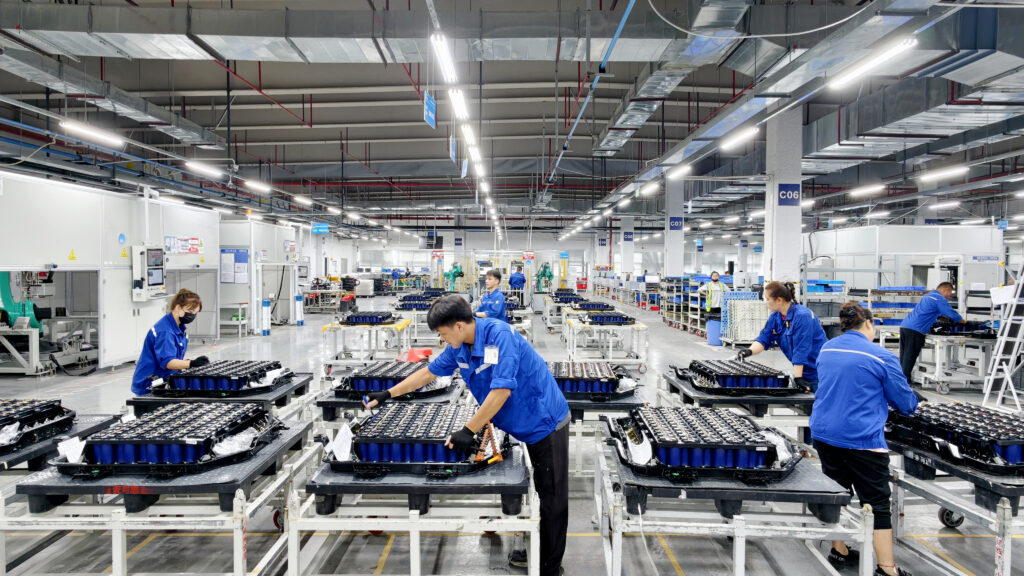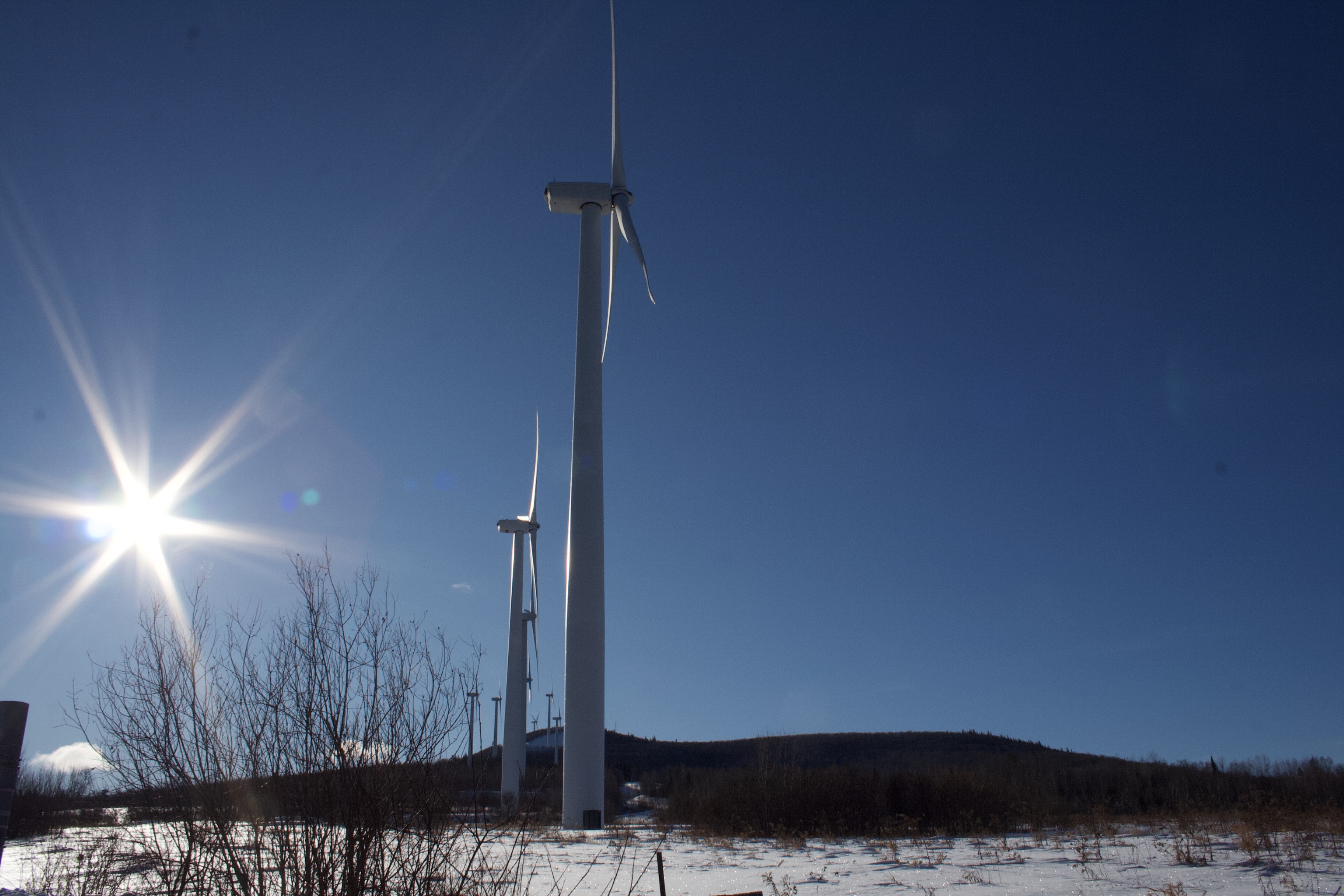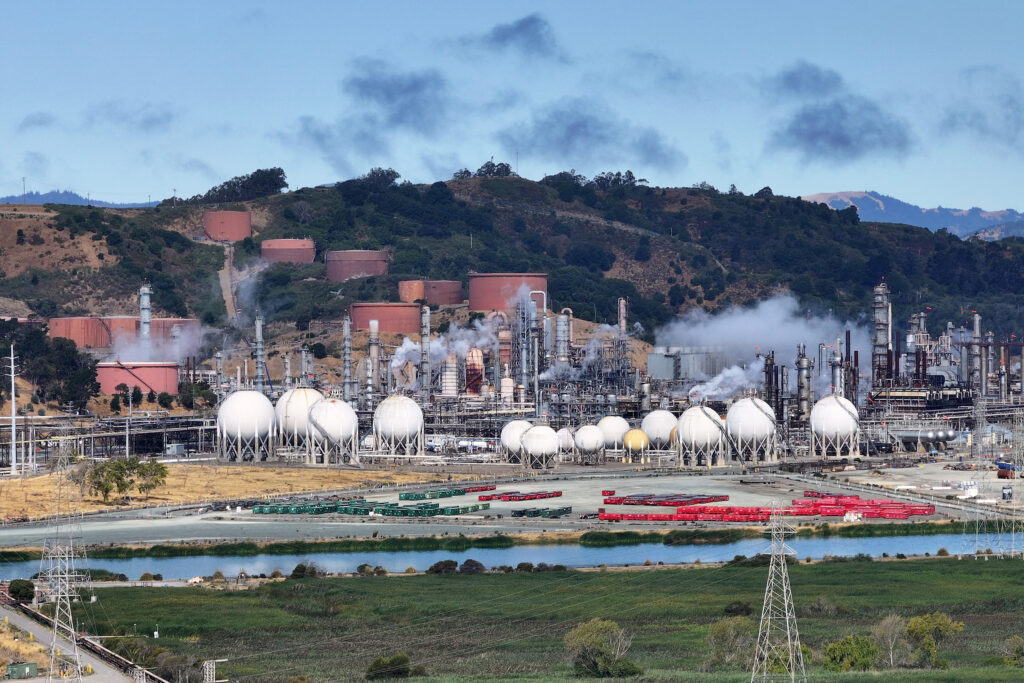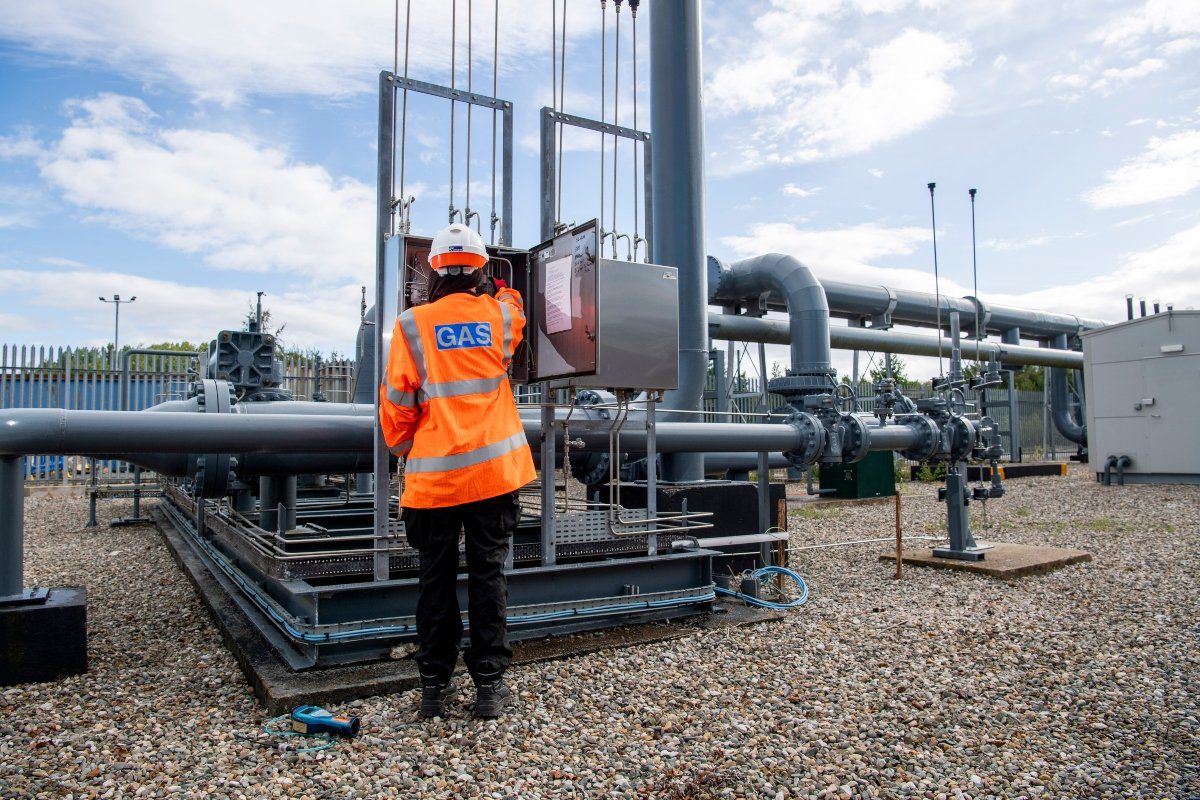The Trump administration has canceled outright or is trying to cancel billions of dollars in federal grants for research about energy and the environment.
Dustin Mulvaney, an environmental studies professor at San Jose State University, has the unfortunate distinction of being part of two federal grants canceled in the last month that deal with the same community: Moss Landing, California.
“It’s a huge loss,” he said.
Moss Landing hosts one of the largest battery energy storage projects in the world and has been harmed by a series of fires there, including a severe fire in January.
I spoke with him about the grants in part to get a sense of the deeper challenge happening right now. Across the county, researchers are facing an upheaval that likely means a loss of knowledge and jobs.
Mulvaney and his co-investigators received grants from both the National Science Foundation and the Environmental Protection Agency:
- Understanding the environmental justice implications of water and energy projects
Portland State University was the lead applicant for this $399,876 National Science Foundation grant, and San Jose State was going to do a portion of the research, focusing on Moss Landing. The goal was to better understand public controversy over water and energy projects at a time when global warming is driving a greater need to make changes to the water and energy sectors. Portland State received an email from the foundation on April 18 saying the grant was canceled because it “is not in alignment with current NSF priorities.”
- Probing community attitudes about energy storage projects
San Jose State was one of four universities doing the work on this $649,492 EPA grant. The research was aimed at understanding how to maximize the positive effects and minimize the negative effects of energy storage projects in underserved communities, including the area around Moss Landing. EPA said in a May 2 letter that it was canceling the grant because the research was “no longer consistent with EPA funding priorities.”
In February, the National Science Foundation grant turned up on the “woke list” of federally funded research that Sen. Ted Cruz (R-Texas) characterized as objectionable because it is concerned with race, gender, social justice or environmental justice. Mulvaney knew then that cancellation was a strong possibility.

Once he learned the grants would end, he had to issue layoffs to four of his graduate students. They remain in the graduate program, but no longer have income as research assistants on these projects.
The loss of research jobs is a blow to the students, taking away opportunities for learning and robbing them of qualifications that would have helped them get jobs after graduation, he said.
“We’re known for elevating students from diverse backgrounds into higher-paying jobs,” he said. Having worked on a federal grant is “a feather in their cap that they won’t be able to have anymore.”
Asked why the grant was canceled, the National Science Foundation referred to a “frequently asked questions” page on its website explaining the office’s shift in priorities.
“Awards that are not aligned with NSF’s priorities have been terminated, including but not limited to those on diversity, equity, and inclusion (DEI) and misinformation/disinformation,” the page says.
The research was important for understanding the lessons from Moss Landing. The community along Monterey Bay has experienced the transition away from fossil fuels in a way that many local residents now regard as harmful. In 2018, Vistra Corp. began work to develop a large battery energy storage plant inside the building that once housed part of a natural gas power plant.


Clean energy advocates had hoped the Moss Landing project would be a positive example of how batteries can stabilize the grid while reducing pollution that would have come from using fossil fuels. But reality has failed to live up to these hopes.
After the most recent fire, local officials and residents say pollutants from the plant have caused damage to soil and water and led to widespread reports of illness.
Mulvaney’s research focused on community attitudes about batteries and the transition away from fossil fuels. As the situation in Moss Landing changed, he shifted the inquiry to also cover attitudes about fire response and other aspects of what the community had experienced.
Researchers, policymakers and others can learn from what’s happened in Moss Landing and how it is shaping local viewpoints, he said. Some of this knowledge now will be lost.
Alida Cantor, a geography professor at Portland State University, led the team of applicants that got the EPA and National Science Foundation grants and partnered with Mulvaney and San Jose State, among others. She’s still trying to make sense of the abrupt end of years of work.
“This is not normal. This has never happened before to have grant cancellations on this scale,” she said, referring to all of the federal grants that got cut, not just hers.
Her group’s research is incomplete, but she’s gathered enough of it to draw some conclusions. She found that people can believe strongly in renewable energy and want to address climate change, but still end up opposing local renewable energy projects.
This story is funded by readers like you.
Our nonprofit newsroom provides award-winning climate coverage free of charge and advertising. We rely on donations from readers like you to keep going. Please donate now to support our work.
Donate Now
By understanding the reasons for opposition, the government and businesses can take steps to reduce the local harm of projects and do a better job of explaining the benefits.
“There are opportunities to do better by the community,” she said.
She is working with her university to explore appealing the cancellations, and she said Portland State has been supportive in a difficult time.
Mulvaney doesn’t feel like he or his students are getting enough support from San Jose State.
“There’s a cold indifference coming internally from my university,” Mulvaney said. “It’s been radio silence. It’s just me firing off emails to the administrators saying, ‘Where are you guys?’”
I reached out to San Jose State for comment and they did not respond before my Wednesday evening deadline.
Other stories about the energy transition to take note of this week:
Congress Begins Repeal of Clean Energy Tax Credits: A House committee has voted to advance a bill that would eliminate or accelerate the phaseout of many parts of the Inflation Reduction Act, including consumer-facing tax credits for rooftop solar and EVs, as Marianne Lavelle and I report for ICN. We look at what the bill would do, the politics that will shape whether it becomes law and its ramifications for the climate.
Republican Congressional Districts Have the Most to Lose From Canceling IRA Incentives: If the House bill becomes law, congressional districts represented by Republicans would bear most of the pain, as Brad Plumer and Harry Stevens report for The New York Times. Renewable energy development and factories constructed using IRA incentives have been more common in rural areas that tend to vote for Republicans.
General Motors Touts a New EV Battery It Calls ‘Groundbreaking’: General Motors has announced the successful development of a new EV battery that will reduce use of rare metals and help to reduce costs, as Michael Wayland reports for CNBC. The lithium manganese-rich prismatic battery cells will be used in large EVs such as the Chevrolet Silverado and Cadillac Escalade IQ starting in 2028. By using readily available materials such as manganese and reducing use of cobalt and nickel, these batteries cost less for consumers, although GM did not get into specifics on how much.
Attempts to Restrict Wind Energy Run into Property Rights Concerns in Montana: There is a push and pull in Montana between restrictions on wind energy development and a desire by property owners to have control over what happens on their land, as Karin Kirk reports for ICN. Lawmakers failed to pass statewide restrictions on wind development this year, but efforts to limit construction of wind turbines are active in many local governments.
Inside Clean Energy is ICN’s weekly bulletin of news and analysis about the energy transition. Send news tips and questions to [email protected].
About This Story
Perhaps you noticed: This story, like all the news we publish, is free to read. That’s because Inside Climate News is a 501c3 nonprofit organization. We do not charge a subscription fee, lock our news behind a paywall, or clutter our website with ads. We make our news on climate and the environment freely available to you and anyone who wants it.
That’s not all. We also share our news for free with scores of other media organizations around the country. Many of them can’t afford to do environmental journalism of their own. We’ve built bureaus from coast to coast to report local stories, collaborate with local newsrooms and co-publish articles so that this vital work is shared as widely as possible.
Two of us launched ICN in 2007. Six years later we earned a Pulitzer Prize for National Reporting, and now we run the oldest and largest dedicated climate newsroom in the nation. We tell the story in all its complexity. We hold polluters accountable. We expose environmental injustice. We debunk misinformation. We scrutinize solutions and inspire action.
Donations from readers like you fund every aspect of what we do. If you don’t already, will you support our ongoing work, our reporting on the biggest crisis facing our planet, and help us reach even more readers in more places?
Please take a moment to make a tax-deductible donation. Every one of them makes a difference.
Thank you,




